|
Since August the CDC has recommended that people with moderately to severely compromised immune systems receive an additional dose of the Pfizer or Moderna COVID-19 vaccine. Last Friday the CDC authorized a booster shot of the Pfizer vaccine to certain groups of people six months after receiving the first two doses. This applies only to those who have received the Pfizer vaccine. Earlier in the week the FDA and the CDC’s advisory committee on vaccines both recommended a third dose of the Pfizer vaccine, but differed on who should be eligible. CDC director Rochelle Walensky overruled her advisory committee to align with the recommendations of the FDA. CDC’s new guidelines on who should get a booster shot of the Pfizer vaccine six months after receiving the 2nd shot:
CDC’s new guidelines on who may receive a booster of the Pfizer vaccine:
These recommendations are very broad, which makes it a fairly simple matter for anyone intent on getting a booster to get one. Already in the U.S. people are lining up for boosters. But this is where the ugly issue of vaccine inequity comes into play. As of mid-September, fewer than 4% of Africans have been fully vaccinated. African leaders at the United Nations last week, along with the World Health Organization, pleaded with the developed countries to delay boosters until poor nations received their first doses. There is no question that the supply of vaccines worldwide is limited, and the poor nations are scrambling for initial doses, while people in rich nations are already receiving booster doses. Most health experts agree that booster vaccines will not stop the pandemic. Getting unvaccinated people vaccinated will. People who have been fully vaccinated against COVID-19 have a high degree of immunity and are very well protected against serious illness and death. The focus needs to be on the unvaccinated populations across the globe. Booster doses should be targeted for a very select group of people, such as the immunocompromised and the elderly with underlying health conditions. The United States needs to do a better job at vaccinating the 25% of the population eligible for vaccines who have not yet received one. Rather than spending vast resources on giving boosters shots, the U.S. needs to focus on the unvaccinated and start ramping up for getting children ages 5-11 vaccinated. Emergency Authorization for this age group is only weeks away. Approval for Moderna’s COVID-19 booster vaccine is only days away from receiving approval, but J&J has not yet submitted an application for its booster. For most people who have been fully vaccinated against COVID-19, it is probably more important to go out and get a flu vaccine, and not a booster dose of the Pfizer vaccine. Reference Link: https://www.cdc.gov/coronavirus/2019-ncov/vaccines/booster-shot.html If you enjoy reading this type of commentary please subscribe to my blog and tell a friend. You will receive an email notification when new blogs are posted. The email will come from the site’s email: armchairamerican1776 @gmail.com.
Thanks, Armchair American
0 Comments
Last week the United States commemorated the twentieth anniversary of the 9/11 terrorist attacks. Within four weeks of the attacks the United States was at war with Afghanistan to avenge those attacks. President Biden ended that war on August 31, 2021 after nearly twenty years. Did the President do the right thing in ending the war in the way that he did? What was accomplished, and what is the legacy of the Afghanistan War? These are the topics that I will examine in Part 2 of my blog series on the Afghanistan War. What did the War Achieve? Considering the costs that I wrote about in Part 1, no achievement seems worth the price in lives and treasure. The first few weeks of the war were a glowing success for the U.S. military. The Taliban and al-Qaeda had been routed and Osama bin Laden would be on the run for the rest of his life. The United States took away the initiative from the terrorists and provided some solace to our grieving nation. Thankfully we have not suffered a major terrorist attack since 9/11. It is unclear if this was due to the Afghanistan War or to the fact that the world woke up that September day to the reality of global terrorism. The war did provide the Afghan people a taste of democracy, and provided girls and women educational and career opportunities that had been denied them under Taliban rule. Only time will tell if these achievements survive under the new Taliban regime. As of this writing women can continue to study in universities, but classrooms have become segregated by gender and Islamic dress is compulsory. Women have not been allowed to return to their civil servant jobs, but have been allowed to return to their jobs in health care and education. The Taliban has banned women from playing sports, and in recent days women have been beaten for participating in protests. The strict fundamentalist doctrine under which the Taliban operates doesn’t bode well for the rights of women in Afghanistan. But the world will be watching, and the Taliban is desperate for international recognition and aid. Any good that results from the war will forever be overshadowed by the collapse of the U.S. backed government and the rapid disintegration of the Afghan military, which allowed the Taliban to regain control of Afghanistan. Was President Biden Correct in Ending the War? Despite the chaotic and tragic evacuation from the Kabul airport, I think it was the right decision for President Biden to end the Afghanistan War. The real mission in Afghanistan had ended years before and the U.S. has no vital interest there today. The Taliban had been defeated within weeks of the opening of the war, the terrorist training camps had been destroyed, and al-Qaeda was marginalized and forced into Pakistan. Osama bin Laden was killed ten years later in Pakistan thanks to the C.I.A. and Special Forces, not troops on the ground in Afghanistan. After nearly twenty years and no real progress toward an Afghan government that could stand on its own, it was time to get out of Afghanistan. The U.S. could have kept the Taliban in check by staying there indefinitely like in South Korea and elsewhere, but to what end? Afghanistan has never been a united country, and the past twenty years has shown that the United States can’t make it one. The tribal leaders from across the various territories didn’t recognize international borders that they had no say in establishing, and they certainly didn’t recognize a central authority in Kabul or elsewhere. The various peoples of Afghanistan have outlasted all foreign occupiers over the centuries, including the Romans, British, and Russians. Why did the U.S. government think this time would be any different? President Biden understands that the fight against terrorism isn’t isolated to one country, but it is international. Terrorism is not fought by troops on the ground, but through Intelligence and military capabilities in partnership with allies around the globe. But more importantly, President Biden understands that the world is changing and the security threats to the U.S. and its interests are changing. Competitive and military challenges with China, and cybersecurity threats from Russia and elsewhere need to be addressed head on. Propping up a corrupt government and providing cover to an inept military in Afghanistan was no longer a mission worth fighting. As the President stated in his August 31st speech marking the end of the war “We no longer had a clear purpose in an open-ended mission in Afghanistan”. Whether or not you agree with him, Joe Biden kept his campaign promise and ended the Afghanistan War. That is something that President Trump, President Obama, and President Bush couldn’t do. President Biden’s Missteps in the Final Months of the War: President Biden clung to former President Trump’s agreement with the Taliban to remove all troops from Afghanistan by May 1, 2021. President Trump deserves all the blame for this ill-conceived agreement. It didn’t include any requirement for the Taliban to work out a cooperative governing agreement with the Afghan government, and it authorized the release of 5,000 prisoners, including some of the Taliban’s top war commanders and al-Qaeda fighters. Perhaps more damaging, the agreement gave legitimacy to the Taliban as a negotiating partner in the affairs of Afghanistan, undermining the legitimate government. President Biden said that he was obligated to follow the agreement signed by the Trump Administration. Why then was he able to extend the deadline for troop withdrawal to September 11, 2021, later changing it to August 31, 2021? Providing a date-certain withdrawal accelerated the Taliban’s takeover of the country and precipitated the astonishing collapse of the 300,000 strong Afghan military which had be propped up by billions of dollars of American weaponry and years of training. President Biden should not have committed himself to a specific date for withdrawal. The only assurances he should have made to the Taliban were that the U.S. mission in Afghanistan would end after every last American and Afghan who supported the U.S. were safely evacuated. At least he should have moved the withdrawal date to later in the year, outside of the Taliban’s traditional “fighting season”. The rapid advancement of the Taliban fighters, and the collapse of the Afghan government in Kabul, led to the chaotic evacuation of U.S. citizens and Afghan nationals that the whole world witnessed. The poor intelligence, poor planning, and failed execution of the evacuation all rest with President Biden. He bound himself to a date-certain evacuation and not to the successful completion of the mission. Legacy of the Afghanistan War American Influence Diminished in Central Asia: The U.S. mission in Afghanistan has transitioned from a military to a diplomatic one. The embassy in Kabul has closed, but will operate out of Doha, Qatar. Other countries have already stepped forward to fill the void. Qatar and Turkey are providing technical expertise to run the Kabul airport. China is investing billions in Afghanistan, primarily to have access to the vast supply of minerals. Pakistan has strong political ties to the Taliban and are already exerting influence. But rest assured, the U.S. will be involved with Afghan affairs for years to come. Direct American aid, and American based NGOs and contractors will be needed to rebuild the country. Last but not least, the CIA and U.S. military will be keeping a close eye on the Taliban and the other extremist groups within Afghanistan. Taliban and Afghan People: Most international aid organizations have fled the country following the Taliban takeover, with only a few U.N. relief organizations remaining. The Taliban has been politically and economically isolated from the rest of the world. With the rapid collapse of the Afghan government, they were not prepared to manage the country. The World Bank and International Monetary Fund have halted projects and stopped payments to Afghanistan. The. U.S. has frozen assets of the Afghan Central Bank held in U.S. banks. Most banks in Afghanistan remain closed, and many people are unemployed. The Taliban is struggling to deliver basic services, and without foreign assistance Afghanistan is in danger of economic collapse. This week the United Nations warned that millions of Afghans could run out of food by winter, and one million children could die if their immediate needs are not met. The U.S. has pledged $64 million in new funding for food and medical aid, and over $1 billion in aid has been pledged by the international community. The Taliban authorities have promised to facilitate the delivery of aid and to safeguard humanitarian aid workers. ISIS, al-Qaeda, and other extremist groups still exist in Afghanistan. Let’s hope that the Taliban keeps its promise by denying them sanctuary. Lessons Unlearned: What is it that allows the federal government and the U.S. military establishment to get the United States entangled in foreign wars for which there is so little to gain, but so much to lose? Why is it that the hard lessons learned from prior military disasters fail to resonate with our current batch of leaders? Is it ignorance or just plain hubris? The use of military force by the United States over the past fifty or so years can certainly be characterized as hubris. By which I mean, showing excessive pride, dangerous overconfidence, and arrogance. I grew up watching the Vietnam War on T.V., and was a senior in high school when the North Vietnamese forces overwhelmed the South Vietnamese, and forced the U.S. backed government in Saigon to surrender. I will never forget the images of desperate U.S. citizens being evacuated from the roof of the U.S. embassy by helicopter. In an 18-hour mass evacuation effort, over 1,000 U.S. citizens and 7,000 South Vietnamese were transported by military helicopters to U.S. warships in the South China Sea. The parallels to the chaotic evacuation of U.S. citizens from the Kabul airport are striking, but they don’t end there. The U.S. had trained and equipped the South Vietnamese military. But just like the Afghan military, without direct U.S. support, the South Vietnamese forces collapsed. The South Vietnamese government proved to be corrupt and inept, just like the U.S. backed government in Kabul. Without the billions of dollars flowing from the United States, and without direct military support, both governments folded like a house of cards. The Pentagon Papers, published in 1971 by the New York Times, revealed that the Johnson Administration had systematically lied to the public and Congress about the costs and progress of the Vietnam War. A new book by Craig Whitlock titled “The Afghanistan Papers: A Secret History of the War”, documents how the public was misled by our government about the war. Government officials consistently told the public that we were making progress in Afghanistan, when they knew we weren’t. Officials vowed not to get mired in “nation-building”, while it wasted billions of dollars doing just that. The U.S. flooded Afghanistan with more money than its economy could absorb, leading to graft and corruption. The U.S. government knew that the mission had no clear strategy, but continued anyway. The U.S. military knew as early as 2002 that the war was heading for a Vietnam-style quagmire, but the public was never informed. Even more disturbing is the fact that our government knew that the Afghan military and the Afghan government were no match for the Taliban, but stuck with them anyway. When will we ever learn? Final Thoughts: I believe that President Biden did the right thing in ending the Afghanistan War. It was started twenty years ago in response to a national tragedy. Americans put their differences aside and came together in common cause at a time of national emergency. The United States had the support and goodwill of most of the world in the aftermath of 9/11, and we came together in solidarity against a common enemy. America lost its way in Afghanistan over the past twenty years, and much of the goodwill has been squandered. Unity in our country has turned to divisiveness, and we have been unable to come together in common cause against our current national crisis, COVID. I am hopeful that the American spirit can rise above the divisiveness, take to heart the tough lessons of open-ended war, and once again live up to our potential as a great nation. If you enjoy reading this type of commentary please subscribe to my blog and tell a friend. You will receive an email notification when new blogs are posted. The email will come from the site’s email: armchairamerican1776 @gmail.com.
Thanks, Armchair American The last United States military transport plane left Hamid Karzai International Airport in Kabul, Afghanistan just before President Biden’s self-imposed deadline of August 31, 2021. This brought an end to the U.S.’s twenty-year war in Afghanistan. But there were no parades or celebrations (except by the Taliban) to mark the end of America’s longest war. The chaotic evacuation from Kabul, the rapid collapse of the U.S. backed Afghan government and military, and the takeover of the country by the Taliban, exposed the political deceptions and failed policies of the U.S. government over the past twenty years. The tragedy in terms of human costs will never be fully known, but the folly of an open-ended war and nation-building is now visible for the world to see. This sad chapter in American history ends, but the epilogue to the Afghanistan War will be written over the following weeks, months, and years. I dare say it won’t make you proud to be an American. So why were we in Afghanistan and what were the costs? Why the U.S. Went to War in Afghanistan: As our nation commemorates the twentieth anniversary of the September 11, 2001 terrorist attacks, it is important to remember that the Afghanistan War was started to avenge these attacks and to bring the perpetrators to justice. U.S. Intelligence agencies linked the attacks to Osama bin Laden, the al-Qaeda leader who was operating inside of Afghanistan with the Taliban’s blessing. The Taliban had been ruling Afghanistan since the mid-1990s under strict Islamic fundamentalist laws. The U.S. demanded that the Taliban turn over bin Laden and members of his network, and close all terrorist training camps. The Taliban refused the U.S.’s demands and the rest is history. Brief History of the Afghanistan War:
The Costs in Lives and Treasure: The human and monetary costs of the war in Afghanistan are staggering, but the true costs will never be known. We can measure the direct monetary costs, and have a fairly accurate accounting of the dead and injured. But how do you place a cost on the suffering of families who have lost loved ones, or on the emotional toll on families caring for those injured or traumatized by the war? There was no shared sacrifice in this country during the past twenty years of war. About 800,000 U.S. service members were deployed to Afghanistan over the past twenty years, many for multiple deployments. Only a small fraction of the U.S. population was engaged in any aspect of the war. Did the people on the home front go without material goods or pay higher taxes to support the war effort? No, there was no call from our leadership to share in the sacrifices of those on the front lines. Presidents Bush and Trump actually lowered income taxes during the war to encourage consumption. All the money used to execute the war and to rebuild Afghanistan was borrowed. It will be up to future generations to pay the bill. According to an ongoing study by Brown University’s “Costs of War Project”, the monetary costs of the war could reach $2.313 trillion. This figure does not include money the U.S. government will spend on lifetime care of wounded veterans, nor does it include future interest payments on money borrowed to fund the war (https://watson.brown.edu/costsofwar/figures/2021/human-and-budgetary-costs-date-us-war-afghanistan-2001-2022). The human toll of the war was also horrendous. It is estimated that 243,000 people have died as a direct result of the war. Here is a partial list of the casualties:
These grime statistics don’t capture the plight of the millions of Afghan civilians who have been displaced, or the tens of thousands who are now refugees in foreign countries. Families destroyed, livelihoods ruined, a shattered economy, a tenuous security situation, and an unknown future are the costs of war to the Afghan people. In part 2 of this blog series on Afghanistan I will examine whether or not President Biden did the right thing in ending the war, and the legacy of the war. If you enjoy reading this type of commentary please subscribe to my blog and tell a friend. You will receive an email notification when new blogs are posted. The email will come from the site’s email: armchairamerican1776 @gmail.com.
Thanks, Armchair American |
AuthorThe Armchair American. Archives
November 2024
Categories
All
|
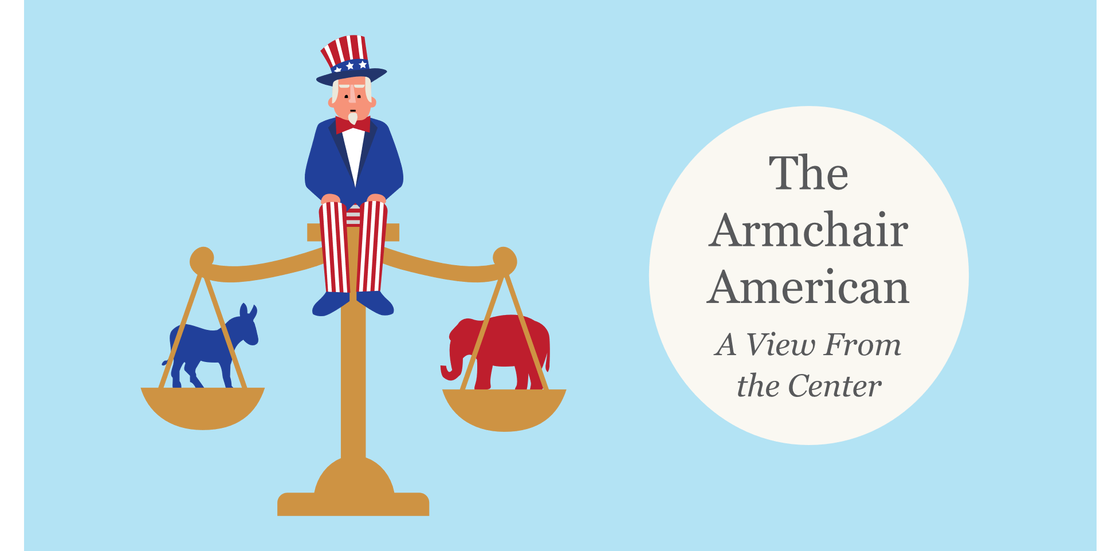



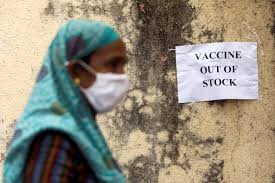


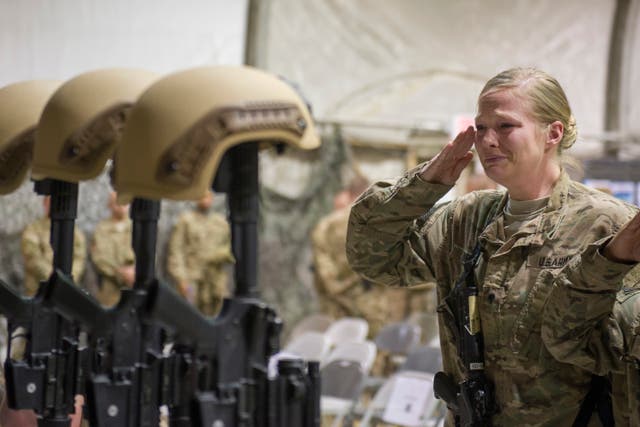

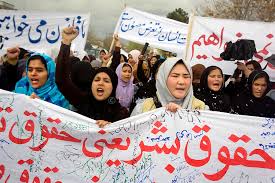
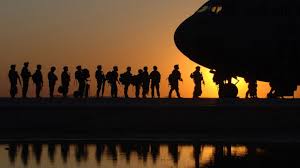
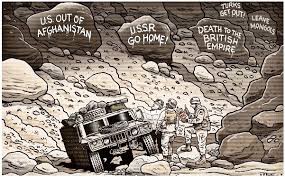
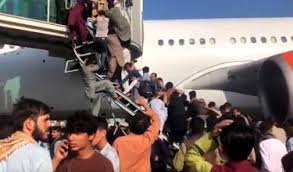
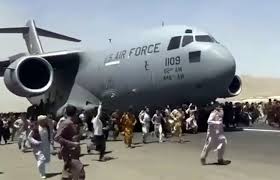
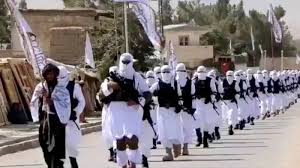
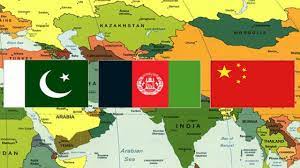
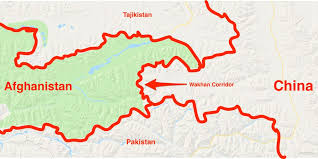
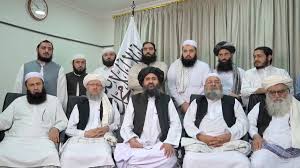
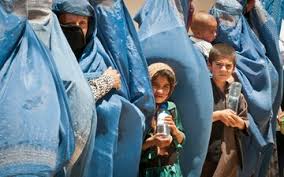
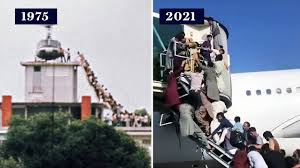

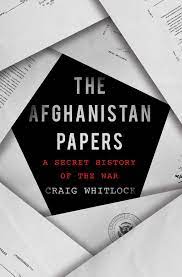
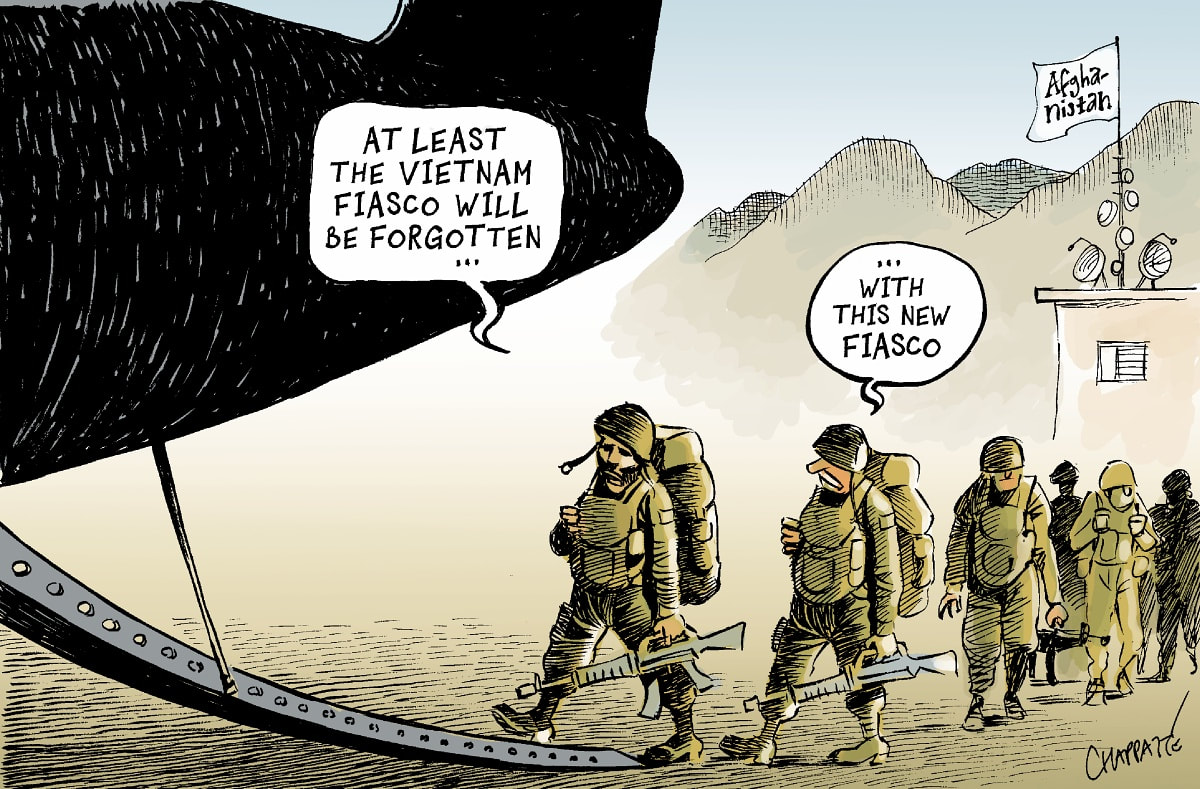
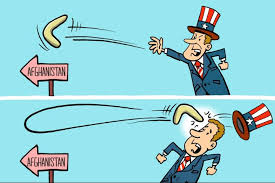
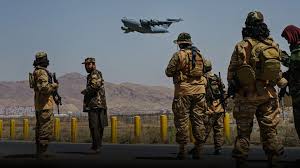
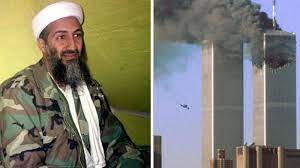
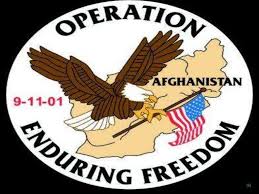
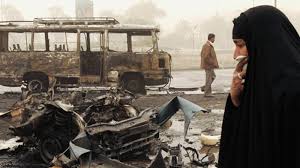
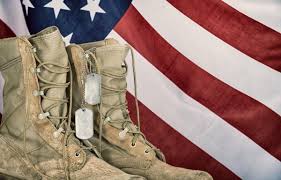
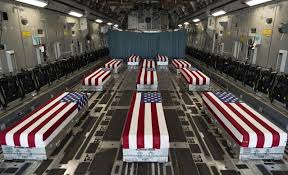
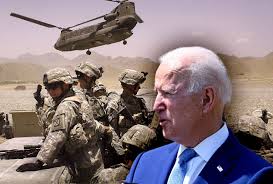

 RSS Feed
RSS Feed